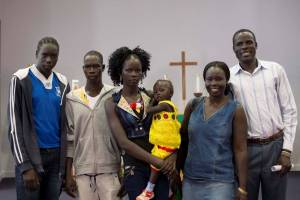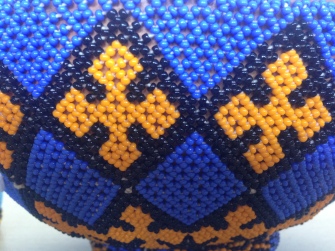
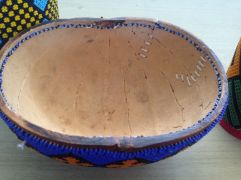
During our second interview for the book, Otholi showed me the bowl, cup and jug, decorated with beadwork by his wife Ariet, that his family had brought from Ethiopia. He explained that most of the motifs are crosses because they are Christians. I asked him about the other pattern, some sort of arrow. He laughed and said with admiration, ‘Women are very creative. If they think of some pattern, they can make it.’
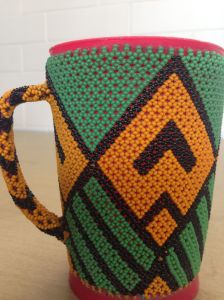
Ariet had packed these items when their family fled the slaying of the Anuak people in Gambella.They stayed away from paths and roads, hiding as they went, and thought they were alone, but found three to four thousand other Anuak in the bush.
‘Mainly women and children … because men don’t want to be called cowards, they don’t want to run, they just want to go back.’ Some found guns and went back to avenge the deaths of their uncles and brothers but Otholi said to Ariet, ‘There is no point I leave you by yourself to go with the kids. We can go together.’
Their journey seeking safe haven took them through Sudan, Uganda and Kenya. Women and children were very vulnerable in the Dadaab refugee camp in Kenya, just miles from the Somali border, where people smuggled guns into the camp, where Christian women who did not adhere to the dress code of the predominantly Muslim Somali refugees, were looked upon as loose women and treated accordingly.
Otholi was trained by the UNHCR and the Kenyan government as a community peace keeper and given a powerful torch, to shine light in dark places, and a walkie talkie to the Kenyan police for situations beyond what he could deal with himself. By night, he patrolled their quarters. By day he walked with the women to collect firewood and to buy food. He accompanied the children on their 30 minute walk to school and back. ‘We men always had to be with our women to protect them,’ he said of those days.
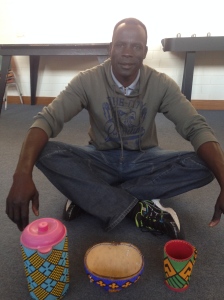
Australian women don’t live in refugee camps but the statistics say that on average, one woman a week is murdered by her partner or ex-partner and one in three women experience domestic violence. How we need men with good, strong hearts, men who know that manhood is not in aggression, or revenge, or shouting the loudest, or hitting the hardest, but in protecting the weak and working on behalf of the vulnerable, and even, perhaps, to speak with admiration of the women in their lives, and to cherish them.

